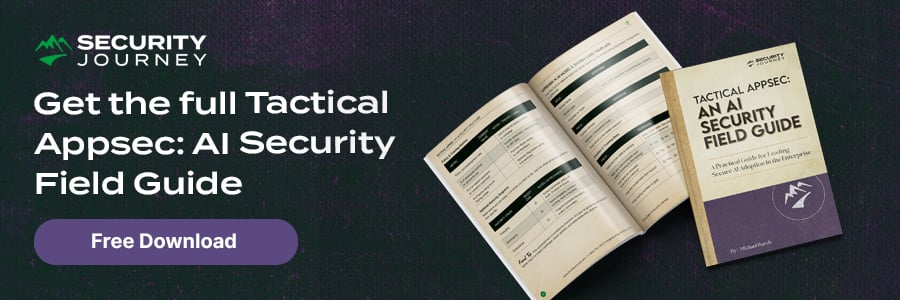Published on
Large language models (LLMs) like ChatGPT are powerful tools, but it's crucial to remember that data privacy is paramount. Cloud-hosted LLMs retain the information you upload, potentially forever. This data can then be used to train other models, posing various risks to individuals and businesses.
Here are five types of data you should never share with AI:
- Credit Card Statements
- Medical Records
- Proprietary Code
- Proprietary Code
- Legal Documents
Credit Card Statements
These documents are highly sensitive and contain critical information related to your financial identity. Specifically, they include your credit card numbers, expiration dates, security codes (CVV), and billing addresses.
Learn What Your Devs Are Doing with AI and How It Impacts Your Software Security
This information is not just personal; it's a gateway to your financial accounts. Sharing any of this data with a large language model (LLM) poses a substantial security risk, as it could lead to unauthorized access, fraud, and identity theft. Once this sensitive information is exposed, it can be misused by malicious actors, resulting in severe financial and emotional repercussions for the victim. This underscores the importance of being cautious and aware when it comes to sharing sensitive data with AI.
Therefore, treating credit card statements and their contents with the utmost care and confidentiality is essential to protect yourself from potential threats.
Medical Records
Your health information is highly sensitive and encompasses a range of details such as diagnoses, treatments administered, medications prescribed, allergies, and other personal health data. Maintaining this information's confidentiality is crucial to protect your privacy.
Read More About What Engineering Leaders Need to Know About AI Security
Sharing such data with a language model or similar technology could pose significant risks, as there is a potential for this information to be stored and accessed indefinitely. This could lead to unauthorized exposure of your private health details, which can have serious repercussions for your personal and professional life.
Therefore, it is essential to handle medical records with the utmost care and ensure they are only shared with trusted healthcare providers or systems that adhere to strict privacy standards and regulations.
Proprietary Code
For software developers, the temptation to upload company code to a large language model (LLM) for debugging or assistance can be quite strong. However, this decision carries significant risks.
AI/LLM Secure Coding Training: Don't Let Innovation Outpace Security
Your code represents your company’s intellectual property; exposing it to an external platform could inadvertently disclose vital trade secrets. This poses potential legal risks, providing your competitors valuable insights into your unique technologies and methodologies.
It's essential to weigh these dangers carefully and consider safer alternatives for code assistance that do not compromise your company's proprietary information.
Business Plans
Business plans and roadmaps are critical documents that outline your company’s strategic vision, including specific objectives and long-term goals. They detail various aspects of your business strategy, including market analysis, financial projections, and operational plans.
From Code Generation to Bug Detection: The AI Tools Every Developer Should Know (And How to Stay Secure)
Sharing these sensitive documents with a large language model (LLM) poses a risk, as doing so could inadvertently expose your proprietary strategies and insights. This confidential information leak could give your competitors a significant advantage, potentially undermining your company's market position and future successes.
Legal Documents
Contracts and agreements frequently encompass critical and sensitive information, including pricing structures, obligations of the involved parties, and confidential customer data.
Your Risk and Compliance Officers Guide to AI
Distributing these documents to a language model (LLM) presents a significant risk of privacy violations and potential legal repercussions. Such exposure could lead to unauthorized access to sensitive information, jeopardizing individual and corporate confidentiality while complicating compliance with legal standards.
Handling these documents with the utmost care is not just a precaution; it's a responsibility. It's essential to safeguard against breaches that could result in serious consequences.
AI and Data Privacy
In the age of advanced AI, it's crucial to remain vigilant about protecting our sensitive information. While large language models offer incredible potential, they also come with inherent risks to data privacy. By being mindful of the types of data we share, we can harness the power of AI responsibly while safeguarding our personal and professional interests. Remember, it's always better to err on the side of caution when it comes to sensitive data and AI.
Security Journey's AI/LLM Secure Coding Training will transform your team's perspective on technology, highlighting its benefits and potential threats to your application's security.
Data You Should Not Share With AI: Frequently Asked Questions
What information should you not share with ChatGPT?
You should avoid sharing personal identifiers, passwords, or company secrets when using ChatGPT or similar AI chats. Even though responses seem private, user inputs may be logged or reviewed to improveAI systems. To protect yourself and your organization, never upload confidential dataor sensitive materials that could be traced back to real individuals or internal operations.
Is it safe to upload data to Claude?
Claude is built with strong ethical frameworks in artificial intelligence, but safety depends on what kind of information you upload. Avoid submitting confidential data or proprietary content since no public generative AI tools can fully guarantee deletion or non-retention. It’s best to use anonymized or dummy data when exploring the model’s capabilities.
Does Claude keep my data private?
Claude’s developers emphasize transparency and privacy, but your user inputs may still be stored temporarily for moderation or security. When interacting with AI systems, assume that any text could be accessed by human reviewers. Limiting sharing personal information helps reduce privacy risks and ensures compliance with your organization’s data policies.
Is it safe to upload documents to Perplexity?
Perplexity uses artificial intelligence to analyze and summarize data, yet users should remain cautious. Uploading sensitive or confidential data could expose private details if logs or API connections are compromised. Always strip identifying details from documents before sharing them with generative AI tools.
Is Gemini safe for confidential data?
Gemini follows Google’s enterprise-level security standards, but no AI systems are immune to risk. Avoid sharing personal information or regulated materials through AI platforms, especially when confidentiality is critical. For business use, always rely on approved security protocols and keep confidential data within protected environments.


